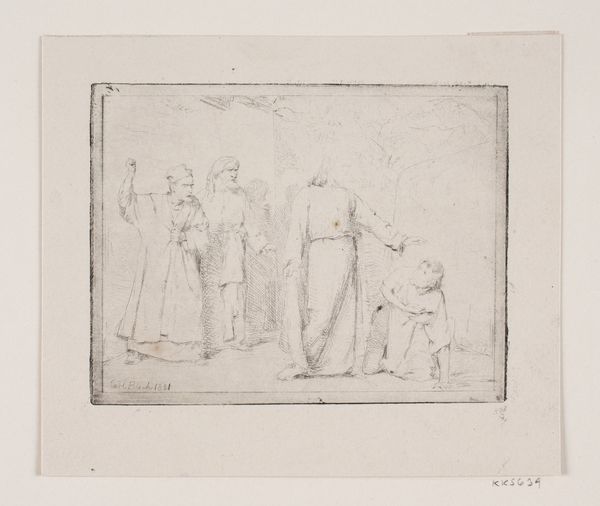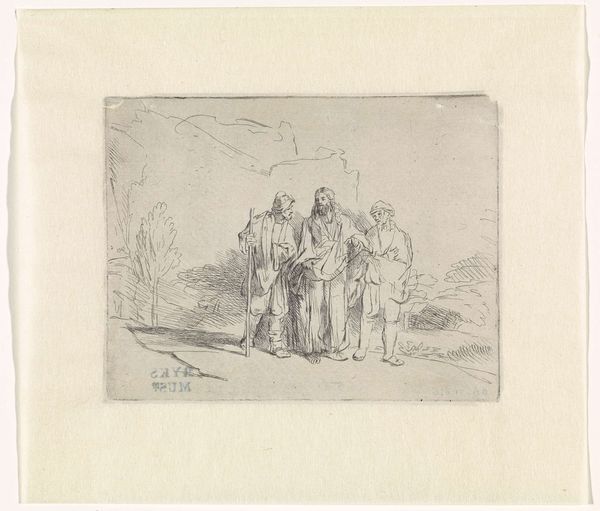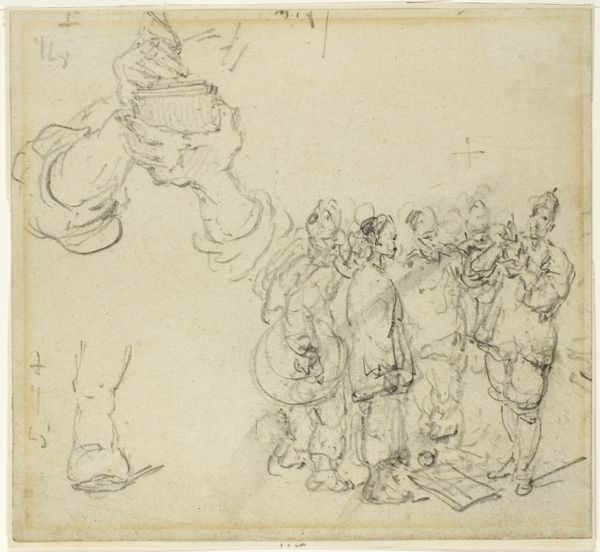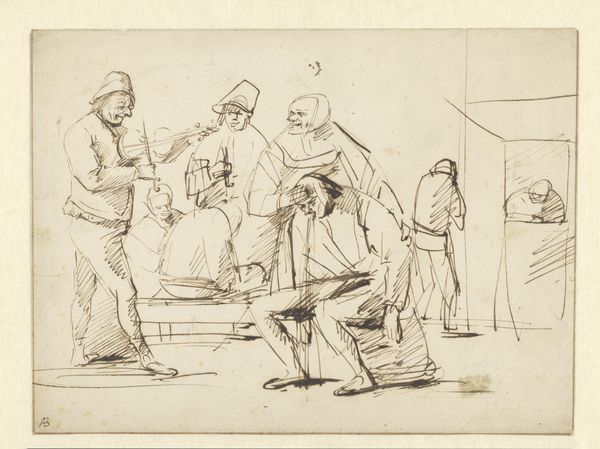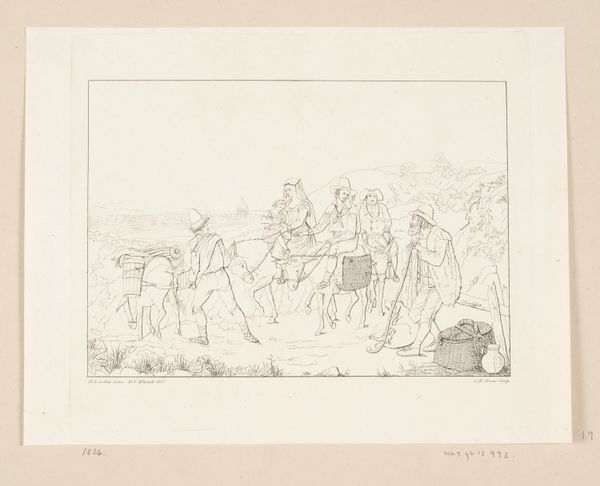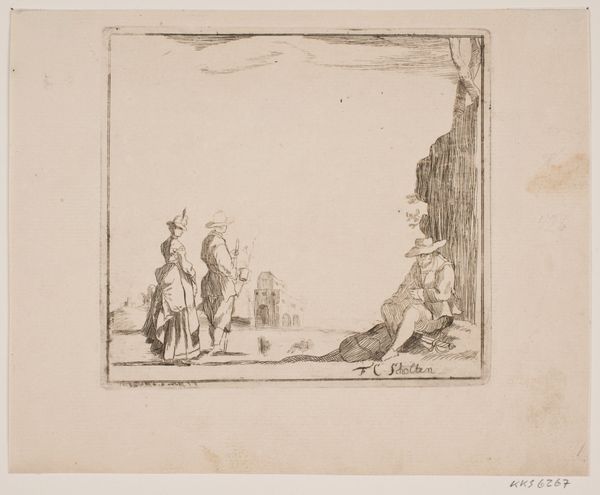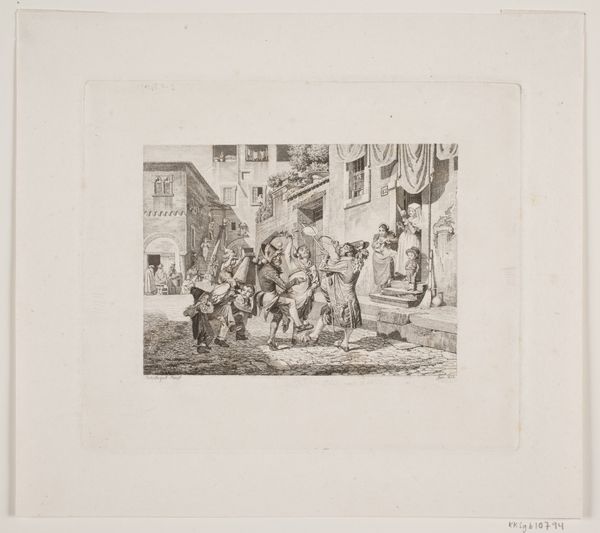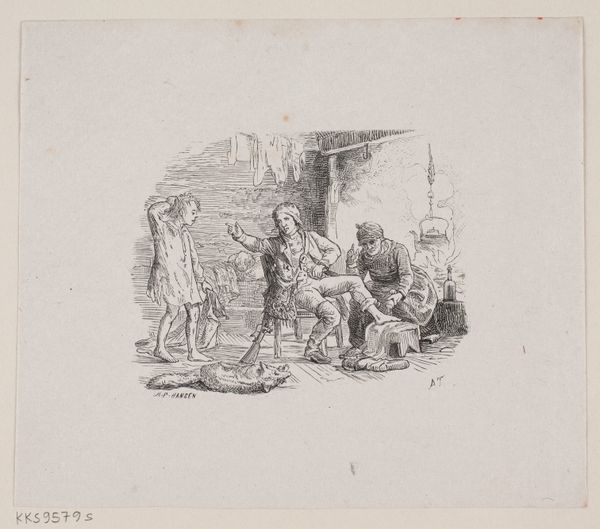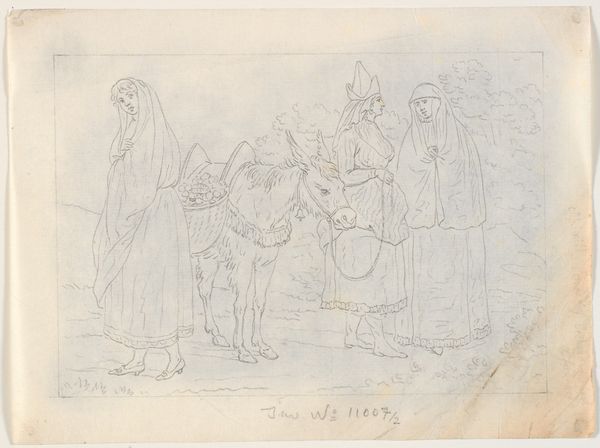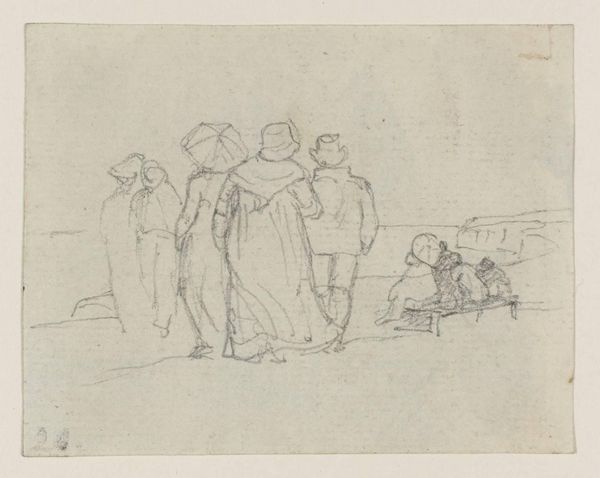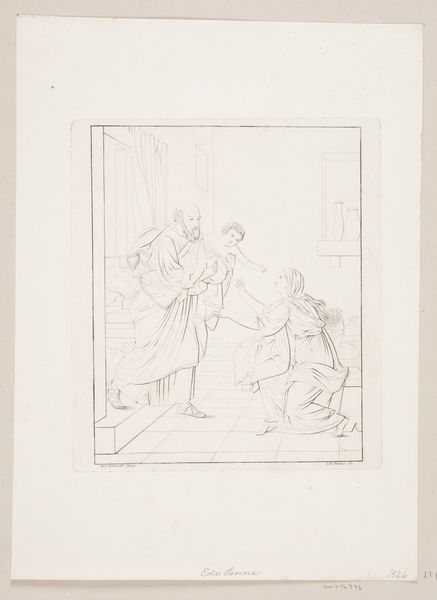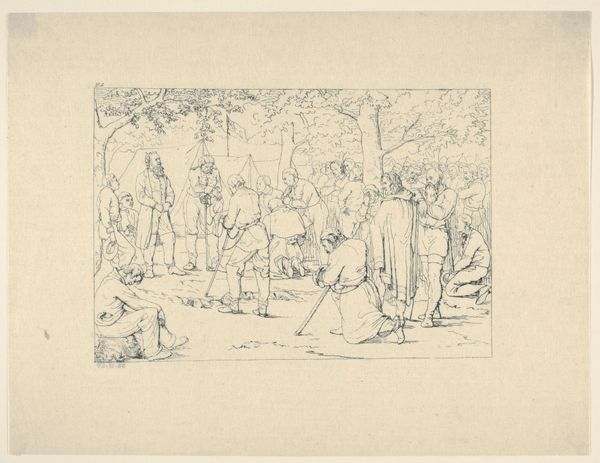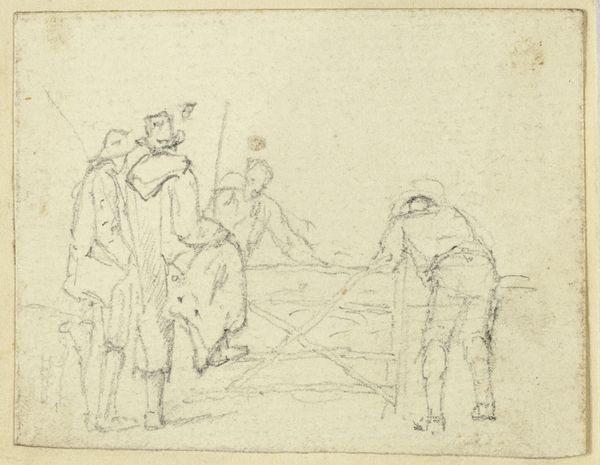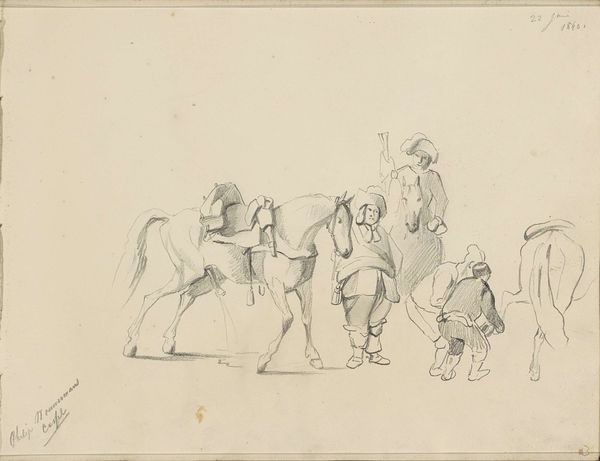
drawing, print, pencil
#
portrait
#
drawing
# print
#
pencil sketch
#
figuration
#
romanticism
#
pencil
#
genre-painting
Dimensions: 112 mm (height) x 121 mm (width) (plademaal)
Constantin Hansen made this print, "En russisk matros på Toldboden," using etching, a printmaking technique that's been around for centuries. A metal plate, likely copper, is coated with a waxy, acid-resistant substance called a ground. The artist then scratches an image into the ground, exposing the metal. When the plate is immersed in acid, the exposed lines are etched, creating grooves. Ink is then applied to the plate, filling the etched lines, and the surface is wiped clean. Finally, the plate is pressed onto paper, transferring the image. Here, the etched line defines figures in a composition that seems both realistic and dreamlike. Look closely, and you see the economical use of line, which brings out the quality of the paper, its subtle tone and texture. The looseness of the technique allows for both accurate observation, and an openness to experiment. Etching lends itself to the easy reproduction of images. In the 19th century, this had implications for the mass dissemination of information and art, affecting everything from politics to commerce. Considering these factors allows us to move beyond traditional notions of "fine art" and recognize the social and cultural significance of printmaking.
Comments
No comments
Be the first to comment and join the conversation on the ultimate creative platform.
